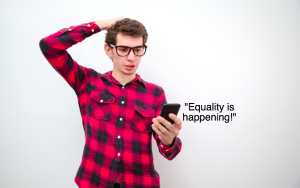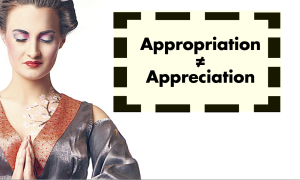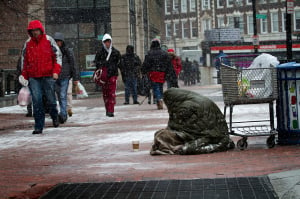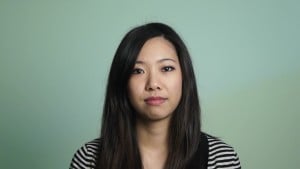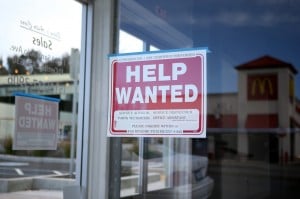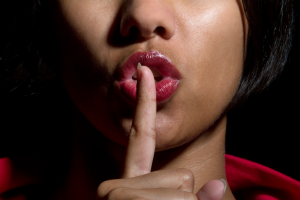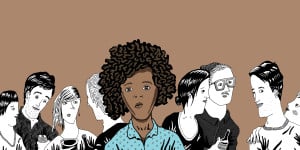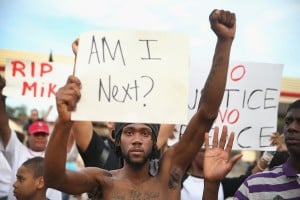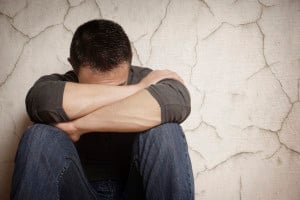After President Obama was first elected, a woman that I supervised told me she was very upset with people in her church. She said that she had never heard any of them make a single “racist” comment until after that election. She said that one of their main concerns was that the president would “choose all Black people to be part of his cabinet.”
What she thought was most interesting is that they said this to her – a Black woman! Talk about privilege. There is no other word you could use to describe feeling comfortable enough to make such a statement like that to a person of color.
That is racism – but it’s also what I’d like to call “the fear of equality.”
I describe the fear of equality as being the subconscious panic a person or group experiences when a traditionally oppressed group that they fear, hate, or don’t understand begins to take up rightfully deserved space in society.
In this case, because somewhere in their minds is the belief that if white people are not in control, then Black people will be – and that scares the hell out of them.
And this fear is not only limited to people who don’t accept their privilege or identify as feminists. It’s something that most of us have probably experienced at some point in our activism, and we need to face it – to name it, to overcome it, to avoid denying it.
And you – especially if you’re someone within the feminist movement – might be thinking, “What? I don’t fear equality!”
But you may be surprised at how much you do.
And this article is going to explore a few examples of how it may look for some of us.
1. What Fearing Equality for the Poor Looks Like
The economically super-privileged are clearly afraid that if things like the income gap is closed, and more people have the opportunity to financially succeed, they will lose a huge hammer they can use to maintain social, economic, and political control – even if that fear is subconscious.
Economic privilege is different than some others because it can be taken away, and that’s something that scares the bejesus out of people.
In some ways, it is easier for a white person to own their racial privilege, because they can’t lose it. And that’s a comfort, whether we realize it or not.
Nobody in all seriousness would tell us to change our race, but someone can tell you to pay more in taxes and perhaps have a little less so others can have more.
And some people really, really hate that.
For some in the upper middle class, the fear of equality is about losing comfort. This is the class that is not mega-millionaires, but can afford nice vacations, above average cars, and pretty nice houses. But they don’t have endless resources to throw in every direction. One illness, one lost job, one anything-goes-wrong, and they know they could lose it all.
So, this is the “Let’s not rock the boat too much” class of people concentrating on keeping what they got and maybe getting more, rather than worrying about those who have a hell of a lot less.
And of course, when you do nothing to actively fight against oppression – you help it.
What’s amazing is that somehow certain political groups have figured out a way to pit people who are in poverty against one another.
A working class family may be holding down several jobs and still come in under the poverty line, but they’re encouraged on a daily basis to blame the non-working poor for the troubles of the economy (nevermind that both groups are actually getting screwed by the same system).
They’re peppered with messages that say that lazy people are draining our resources, and that their families would be better off financially if not for them.
For many of these folks, the fear is that somehow, non-working people will get a benefit that they don’t have. And so, people are discouraged from helping them.
2. What Fearing Equality for Transgender People Looks Like
Every message that has ever been used to hold people back was designed to scare the hell out of the dominant group.
For example, one threat about LGBQ people was that we must keep non-heterosexual people from marrying in order to keep humans from marrying their pets – and also to avoid God’s judgement on society.
And of transgender people, the fear-inducing message is that we must keep transgender people from using a public restroom of their choice because they may assault us – and also to avoid God’s judgement on society.
Unfortunately, the majority of people who know nothing or very little about transgender people will not seek out information from resources that are accurate and meaningful in order to unlearn their fears and false beliefs.
The only sources of information that they’re likely tapping into are just as confused as they are. Other sources are deliberately misleading them, and giving them the impression that transgender people just want to “trick” people or are sexual deviants who want to prey upon our children.
And so, fear of equality is instilled, but never expelled.
Now, some transgender allies may completely blow off the previous examples because they already know those arguments are bullshit.
But there are subtle fears that exist that are not as easily dismissed. Indeed, they may not even be recognized as such.
For example, these fears can occur between marginalized groups. It might sound something like this “Let’s worry about LGBQ issues, and then worry about trans rights. We have to start somewhere.”
The phrase “We have to start somewhere” is a stealth weapon of oppression. It’s used for all kinds of things. It sounds so logical, how can you argue against it? Unless, of course, you’re the [insert marginalization] that’s getting screwed.
Some might argue that the last example is not really a fear of equality, just a hoarding of advocacy resources. But I beg to differ.
It’s about fear – the fear that their fight for equality will get in the way and jeopardize yours.
So, what kind of impact can a fear like this have? What happens when we hold one group back so that we can prevail?
Well, right now, there are thousands of same-sex marriages taking place all around the country because our nation’s highest court has legalized it.
Meanwhile, some of our neighbors and friends are being told that they can’t use a public restroom of their choosing.
3. What Fearing Equality for People of Color Looks Like
Fear is always at the core of the fight against equality.
We must keep people of color from voting because they will certainly kick our asses out of office if we don’t.
Oops, sorry, I meant that people should have to provide specific identification and perhaps pass a citizenship test before being allowed to vote. I mean, what if they are not knowledgeable about the things they’re voting for?
Make no mistake: The aggressive push to prevent people of color from voting is rooted in fear of their presence and influence.
The message that people of color are dangerous, poor parents, and all around dysfunctional are sentiments that are shared today, in this day in age, not just during the time of slavery or the Civil Rights Movement.
Here is an actual quote from an article published on June 1st in my small local newspaper regarding children of color in schools:
“First, we need to admit to the proportion of unruliness among minority students. If minority students are being suspended five and six times more often than white students, we maybe should assume that these students are five and six times more unruly, regardless of ethnicity. In most cases, the problem of unruly kids goes back to parenting, or the lack thereof. If there is no discipline exercised at home, there will be no discipline practiced in school.”
Wow, right?
Think about the picture that’s being painted here.
The state I live in is made up of around 90% white people. I have lived in several other places and have multiple experiences with people who have a race other than mine, but that’s not the case for everyone.
If you’re someone who perhaps doesn’t have diverse experiences with people of color, the quote above is very likely to influence your belief system.
And what might this kind of message lead you to believe and fear?
Perhaps that people of color don’t raise their children right. That children of color are dangerous. That white people are more likely to be stable parents who raise their kids in loving homes, and therefore, their children are less dangerous.
If this is what you’re led to believe, then perhaps you’d be afraid of the family of color who moves in next door, or the Black president who may ask other Black people to be part of his cabinet.
Here’s Why Identifying Our Fears Is So Necessary
Part of the responsibility of being a privileged person is to identify your fears of equality and overcome them.
By now you may be thinking, “Okay smarty-pants, what are you afraid of?”
Fair question.
Believe it or not, there was a time that I feared my own equality. No really, I did.
Somehow, the “feminazi” garbage had found a place in my own head. So, I did what many people who have a marginalization do when they don’t want to believe it – I denied it.
A good example of this phenomenon is the people who benefit the most from feminism, but hate it with a passion. They tell others that “feminism makes victims out of women” and is a movement centered on hating men. That we exaggerate how much inequality there is in the world.
These messages are full of fear of equality. They viciously attack anti-oppression work in order to maintain the status quo of comfort.
We have to do better. We really need to examine ourselves and our motives. We need to accept feedback and criticism. That is the light we need to find our fears of equality and overcome them.
***
People always talk about the need to wipe out hate. That fear is not the real problem. But the truth is that we hate and oppress what we fear.
A very popular quote people use is “Our greatest fear is the fear of the unknown.” And the saddest testimony of the human race from my point of view is that we are unknown to one another.
Don’t make the mistake of thinking that you’re beyond fearing equality and differences. You’re not. I’m not. So let’s start really paying attention to it.
[do_widget id=’text-101′]
Dr. Robin Landwehr is a Contributing Writer for Everyday Feminism She’s a mental health counselor and an unapologetic feminist. She holds a Doctor of Behavioral Health degree from Arizona State University, a M.S. degree in Mental Health Counseling from Capella University, and is a licensed counselor in North Dakota and Florida. You can follow Robin on Twitter @RobinLandwehr1 or visit her sometimes neglected personal blog at The Hippie in Me.
Search our 3000+ articles!
Read our articles about:
Our online racial justice training
Used by hundreds of universities, non-profits, and businesses.
Click to learn more


